Doing science in a developing country: my 2 month internship in Malaysia
In North America and western Europe we are a bit snobbish about science. Everything has to be done with rigour and precision or it's not real science.

We can afford to think that way because we have enough money for fancy, expensive machines, lab technicians, IT departments, and regular maintenance and safety inspections.
Not every country can afford those things.
Malaysia is not a third-world country, but they are not exactly drowning in riches either. To be honest, I was impressed with the labs at the university I stayed at. They were clean, well organized, and for the most part had appropriate safety procedures in place. The rooms were spacious and the equipment looked to be of reasonable quality and well-looked-after.
All was not quite as it seemed.
You see, to afford such fancy machines a number of corners had to be cut. For example, although everyone did their best to avoid breaking the machines, there was no one to fix them when something did go wrong.
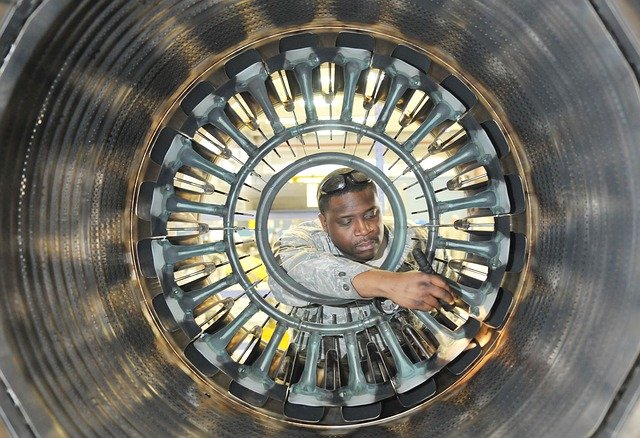
There seems to be a shortage of these guys at Malaysian universities.
Part of the practical work of my project involved using a spectrophotometer connected to a computer. The machine worked fine, but there was one problem. I was told that it was a bad idea to copy my data from the computer to my laptop because the computer had a virus. Instead of paying someone to get rid of the virus, the procedure was to take pictures of the data on the screen and then copy it manually!
My experiment took place in a freshwater aquaculture facility. Actually it was a marine aquaculture facility, but the seawater input system wasn't working, so it had become a freshwater aquaculture facility instead. We used anti-chlorine tablets to remove the chlorine from the water. These tablets were stored in a small jar shared by the whole facility, and the jar had a habit of disappearing. This left everyone unable to dechlorinate their fish tanks until it was relocated, or someone was found that knew where additional tablets were stored. The fish were not happy about this situation, but most of them survived.
I ran into a few problems when trying to run my experiment. 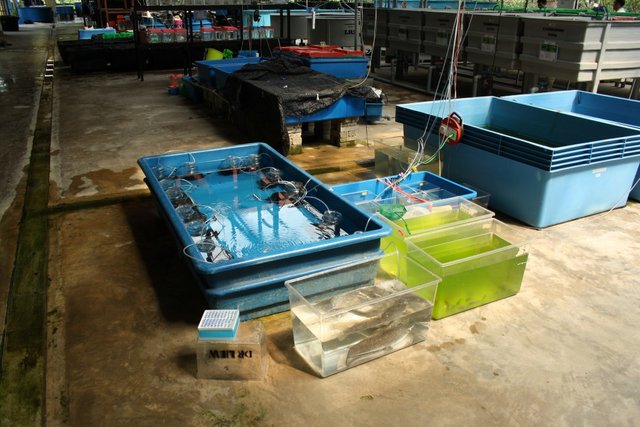
Problem #1: My experiment required heating a 400 liter tank of water to specific temperatures. All the aquarium heaters at the facility had European-style 2-pin power plugs. Malaysia does not have European-style outlets. It has UK-style outlets that require 3 pins on the plugs. You cannot plug something with 2 pins into these 3 pin sockets because the holes don't open properly unless you press all 3 pins in at once.
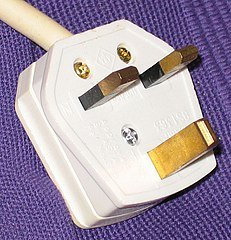
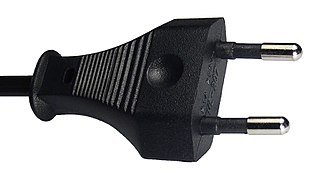
Most of us might consider that there is an easy solution to this: just buy a few adapters! Instead, they had come up with a more inventive solution. Press something else into the third hole temporarily while you push the 2-pin plug into the socket. This was by no means an easy thing to do, and I don't recommend that you try it at home, but it usually worked after a bit of fiddling around.
Problem #2: the aquarium heaters were apparently broken, and didn't actually heat the water. This was solved by another inventive solution. Fill a 1 liter electric kettle with water from the tank. Plug it in until it boils. Dump the hot water back into the tank and fill the kettle again. You might guess that it takes quite a few kettle loads to heat the water by a few degrees, and you would be correct. It was tedious and time-consuming. But it worked.
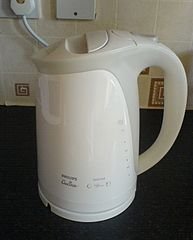
Well, it mostly worked, anyway. There was one tiny problem with the kettle. The automatic shut off didn't work, so if you left it to heat up and went off to take care of other important things, and returned just a teensy bit too late, the water started boiling all over the place and the kettle got overheated and stopped working for a while. Experiment days were long days...
Problem #3: I needed the use of a dissolved oxygen meter.
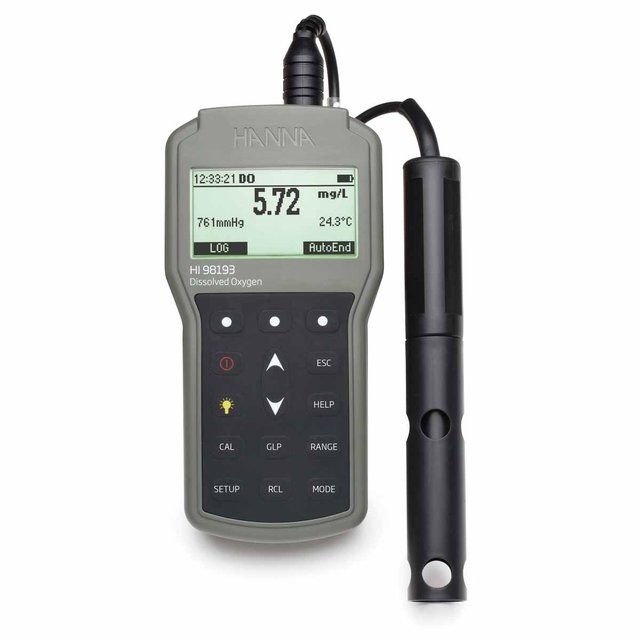
Image from Hanna Instruments.
There seemed to be only one at the university that was considered accurate (personally I might have used the term 'piece of shit' rather than 'accurate', but in fairness it displayed numbers on the screen which occasionally stopped changing for a second or two) and that was in use for another experiment at the actual freshwater aquaculture facility about 1 km away.
At this point I should mention my student helper Adi (not his real name). Thank God for Adi. Wonderful Adi. He didn't always show up on time, or at all, and halfway through the project he got a job in another city and immediately abandoned me. But thank God for Adi because Adi knew how to navigate the system and get things done. I would have been lost without Adi. When he left I managed, but by then I had learned a thing or two.
This problem was solved by a sharing system. When we needed the DO meter, Adi would make a call on his phone, then take off on his motorbike to the other facility 1 km away, and return 45 minutes later with the meter (don't blame him, things happen slower in Malaysia). Then I would take the meter, dip the probe into the water, and curse and struggle and pray that the damned thing would achieve a stable reading at some point instead of jumping up and down like an angry 2 year old that can't find his favourite toy.
Then at some point Adi would receive a phone call and I would rush through the rest of my measurements, skeptically writing down the first number that paused for a second in its madly undulating journey. When I finished, Adi would take the meter back to the other group on his motorbike and return 45 minutes later. I'd have been lost without Adi.
Problem #4: I needed to perform unfamiliar chemistry techniques, but there were no technicians around to teach me the methods. Solution: Adi and I figured it out ourselves. But first we had to obtain a substance that we didn't have in our lab, which was produced from two other chemicals. So we went off to raid the chemistry department.
We knew nothing about these ingredients except the names. Unimportant details like how deadly toxic their fumes might be were unknown to us. I was quite befuddled, wondering if maybe we should check out the safety information or at least find a fume hood.
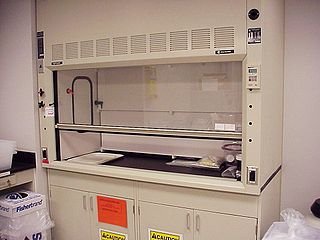
Silly me. Adi took take care of it by opening the bottles and mixing the chemicals together in the open air of the lab, with no gloves, no mask, and no lab coat. Adi is going to live a long and healthy life.
But we managed. We made everything work. I got my project done. You see, the thing about Malaysian scientists is that they have all the essential ingredients of scientists. They are curious about the world around them, they work hard and they want to learn and find answers.
There are some equipment and personnel limitations, and there is not the same standard of rigour that you find in western developed countries. But they do their best. They still do science. They still publish in peer reviewed journals. And they still make progress and contribute to the scientific literature. Best of all, they are creative. They have to be.
Other articles by me:
Enormous spider eats a live caterpillar: night time in the Malaysian jungle
Two months in the Islamic heart of Malaysia
Empathy workshop, part 1: Why the world needs more empathy
Empathy workshop, part 2: How to increase your empathy
Empathy workshop, part 3: Getting better at understanding people you dislike or disagree with
Empathy workshop, part 4: Putting your empathy into action
Intolerance is fear of the unknown
The old man on the bench (a flash fiction story)
If you enjoyed this article, don't forget to comment, upvote and follow me!
Good description of Malaysian attitudes, tempered with a touch of humor. :)
I've lived in many different countries, and I've lived in Malaysia for about 9 years now. There's definitely something deep down in the subconscious of people here, that time and promises don't matter as much to them, as they do to me. They can say meet me at 3 and be an hour late, and they just wouldn't understand if I told them I was upset. Maybe I have a streak of Aspergers. Or maybe it's my Scandinavian upbringing. Germans and Japanese are the same way about rules, promises and punctuality I understand. Not so much the rest of the world... I've had similar frustrations in USA, for instance southern Florida. Maybe it's the heat. Or peaceful living - the Japanese and Europeans have been at war for thousands of years. Or both. :)
There definitely seems to be a bit of a climate-based difference in attitudes about being on time and keeping promises. Germany is, as you say, similar to the Scandinavian regions. During my master studies in Germany, other than me, most of my classmates were German. But there was one from Turkey and one from Brazil. They generally arrived late to everything. They both made a big effort to improve on that, knowing that the Germans value punctuality, and they did manage to get better. But it was really a struggle. They just weren't used to the idea.
My home country of Canada is also much the same as Germany/Japan/Scandinavia, as are the northern U.S. states. But as you head south things get slower and more laid back. Tropical island life is, from my experience, the most extreme example. No one is in much of a hurry and many are not bothered about just deciding not to show up if they feel lazy that day..
yes exactly lol
Your post had been curated by the @buildawhale team and mentioned here:
https://steemit.com/curation/@buildawhale/buildawhale-curation-digest-01-12-18
Keep up the good work and original content, everyone appreciates it!
Thank you very much! I'm honored!
You've weaved your experience into such a good story @shawndove. I was captivated by it actually. I have to laugh as well cos I live in Panama and I see stuff like this happening ALL the time. It shocks and amuses me at the same time. There's no end to the creativity I see here.
Thanks for the compliment @choogirl!
How do you like it in Panama? My brother lived there for a few years, but unfortunately I never managed to visit him there, although I would have loved to.
By the way, have you written about your experiences there? If so, I would love to read the articles.
I like it a lot. Obviously it has some elements of developing country which I don't love, but on the whole, it's great. You can't argue with year summer either.
I haven't written much about Panama recently. I spend most of my time writing Team Australia updates, Trave Digest posts or looking for curie worthy posts like this one.
No worries. I will take a look at some of the travel digests. Always happy to read good travel content, especially as my own life situation is such that I can't do a lot of traveling myself these days.
Regarding the curie vote, all I can say is: huge thank you! I'm floored and flattered.
You're welcome. It is a great post. I wasn't the only curie curator who thought so.
Fascinating and beautifully written!
The thing I love about countries that aren't Australia and western/central Europe (and presumably the US, Canada and Japan, but I've never been to those places), is that things aren't so rigorous and by the book. I love the fact that everyone lives their lives with a slight lack of control. I think it connects people a lot more, not just with each other, but with life itself.
Thanks. Yes, that's a good insight. And (perhaps because of this lack of control) they don't take things too seriously. If something goes wrong or mistakes are made, they just adapt and find a way to keep going instead of freaking out. They have a sort of 'take life as it comes' attitude, and I think most of us in the faster moving developed world could learn from that.
You hit the Curie vote trail! Congrats!
I noticed my reputation had suddenly jumped up a few points and realized something big must have happened! Quite exciting!
I think you can only get it once, but with the boost in followers plus regular qurator upvotes now, you'll be able to get your content out to a wider audience.
This post has received a 1.06 % upvote from @booster thanks to: @shawndove.
Your Post Has Been Featured on @Resteemable!
Feature any Steemit post using resteemit.com!
How It Works:
1. Take Any Steemit URL
2. Erase
https://3. Type
reGet Featured Instantly – Featured Posts are voted every 2.4hrs
Join the Curation Team Here
Congratulations, Your Post Has Been Added To The Steemit Worldmap!
Author link: http://steemitworldmap.com?author=shawndove
Post link: http://steemitworldmap.com?post=doing-science-in-a-developing-country-my-2-month-internship-in-malaysia
Want to have your post on the map too?
Add the following inside your post:
!steemitworldmap xxx lat yyy long description d3scr
(replace xxx and yyy with latitude and longitude)
This post has received a 0.57 % upvote from thanks to: @shawndove.
thanks to: @shawndove.
For more information, click here!!!!
Send minimum 0.100 SBD to bid for votes.
Before sending a transfer to @minnowhelper, verify that your publication meets these conditions (http://www.minnowhelper.com/conditions.php). After the transfer is made, no claims will be received.
The Minnowhelper team is still looking for investors (Minimum 10 SP), if you are interested in this, read the conditions of how to invest click here!!!
ROI Calculator for Investors click here!!!
This post has received a 1.56 % upvote from @drotto thanks to: @shawndove.
Nice post
Nice to meet you